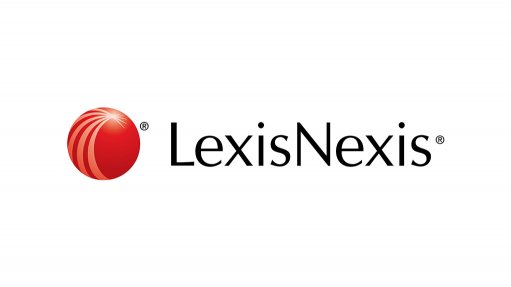
Accountable institutes are facing growing legislative pressure to ensure that their due diligence efforts on clients are stringent enough to uncover unethical transactions like money laundering, tax evasion, embezzlement and the financing of terrorism, should they occur.
Recently, parliament approved the amendment to Financial Intelligence Centre Act (FICA), which, once signed into law, will compel organisations to have a more risk-based approach to client vetting. One such approach is the legislative requirement for deeper investigations into certain clients like juristic persons to determine the identity of their beneficial owners.
According to the FICA Amendment Bill, a beneficial owner is described as a natural person who, independently or together with another person, directly or indirectly owns the legal person; or exercises effective control of the legal person’.
In instances when the beneficial owners cannot be identified, organisations will be restricted from entering into a business relationship with the client, according to the FICA Amendment bill. The Act also stipulates ongoing due diligence on business relationships.
Commenting on the significance of the amendment, Rudi Kruger, General Manager of Risk Solutions at LexisNexis Data Service said that there have been plenty of evidence to prove that beneficial ownership poses a grave risk. “The Panama Papers leak was a huge scandal that highlighted the prevalence of money laundering, tax evasion and non-compliance.
In South Africa, tender fraud through shell companies is very common and is harmful to the economy,” he said.
Despite the risks, the task of identifying beneficial ownership is difficult. However, there is no way for accountable organisations to evade the new FICA legislative requirement therefore strategies must be put in place to ensure compliance.
As part of the strategy, Kruger recommends the following tips towards establishing beneficial owners of clients:
- Educate prospective clients on the amendments to the FICA bill and what it means to them
- Require customers to provide Ultimate beneficial owner (UBO) information and offer to keep details of identification and information under special custody
- Require customers to provide the names of the natural persons that are UBO of legal persons or arrangements that own portions of the company
- Where there are other entities listed as UBO, inquire about the purpose of single and/or multiple layers of corporate names to better understand the reason for that protection
- Require customers to provide certificates of ownership as evidence of ownership and maintain said certificates under custodial services
- Consider using advanced tools, such as LexisDiligence from LexisNexis Data Services, which is used to screen against special lists, and verify if names provided by customers appear on PEP lists or other enforcement lists.
LexisDiligence, a highly advanced due diligence research solution that delivers the intelligence and information companies need for enhanced due diligence. With LexisDiligence, users can select a prospective third party, perform a company or person check, explore associated entity interests, check against sanctions, check for red flags and politically exposed persons data, search for negative news, check the litigation history, assess country risk and confirm as partner/ supplier/ distributor.
LexisDiligence also enables compliance officers to review data from the UK, EU, US and selected Asian jurisdictions. The solution is backed by a comprehensive database of more than 40 years of global archived news and data, designed to help a company perform the necessary due diligence in the areas of risk, compliance and fraud. This makes it a valuable tool for meeting anti-bribery, corruption and anti-money laundering requirements, such as those set out in the UK Bribery Act 2010.
For more information click here.
Lexis Nexis